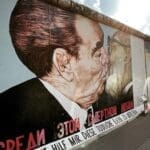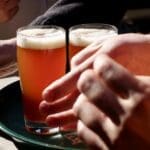At Monsieur Vuong, the hype is real and the hype is justified. Monsieur Vuong is a long-established Berlin institution that any and everyone with a love for Vietnamese cuisine should check out. In our opinion, it is one of the best Vietnamese restaurants in Berlin, probably in all of Germany.
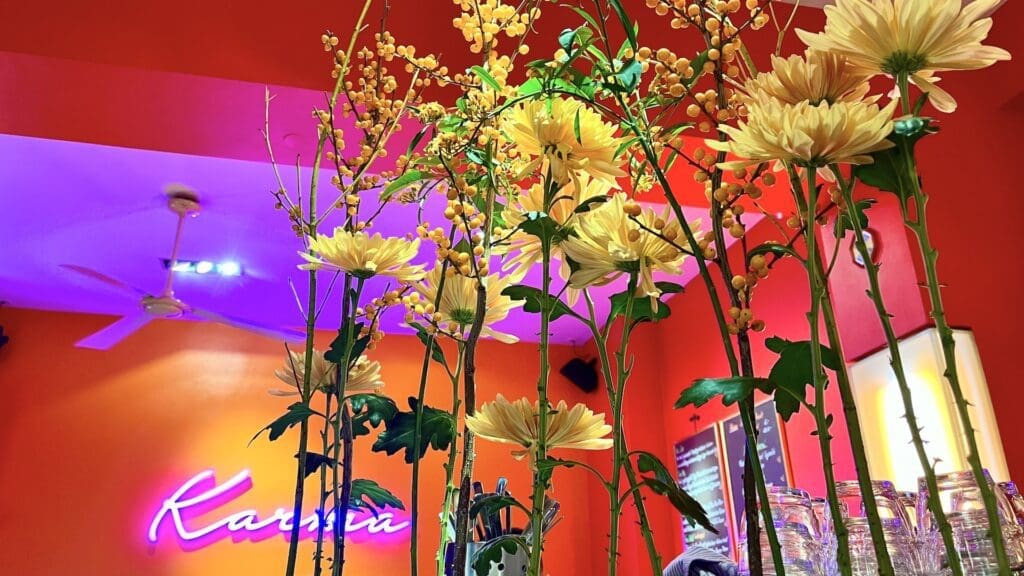
Located in the historic Jewish quarter of Berlin-Mitte that was once called Spandauer Vorstadt, the restaurant brings together all ages and people of all social and cultural backgrounds. As long as you like good food and efficient service, you’re at the right address at Monsieur Vuong and Walk With Us Tours can’t recommend it enough.
On one hand, the restaurant embodies the story of flight and political persecution. On the other hand, it tells the story of new beginnings in a new sociocultural context and the courage that marks the biographies of all migrants in the world. It tells the remarkable story of Dat Vuong (current owner) in particular, the man also known as Monsieur Vuong.
Before talking more about the individual life story of the Vuong family, the restaurant, and its delicious food, it is key to understand the historical context in which the lifeworld of Monsieur Vuong took shape.
The History of Vietnamese in Berlin and Germany
To comprehend the division of Vietnam into a northern communist region and a southern, more westernized part that later on caused massive migratory movements, it is paramount to go back to the latter half of the 19th century.
From the year 1883, what is now Vietnam (back then part of Indochina together with Laos and Cambodia), was gradually conquered by the French and became their colonial territory. However, in 1945 the nationalist leader Ho Chi Minh declared the independence of Vietnam, which was opposed by the French. This resulted in a bloody war that came to be known as the first Indochina War (1946-1954).
In July 1954, an agreement was signed in Geneva that stipulated the temporary division of the country Vietnam, into a communist-dominated north and U.S.-supported south. However, the peace was not to last long.
In the mid-1960s, activities of pro-communist rebels in South Vietnam led to a heavily armed intervention of the U.S. military causing the Second Indochina War — better known as the Vietnam War in the U.S. or the American War in Vietnam (everything depends on the perspective I guess).
Depicted in many Hollywood movies and countless documentaries, this war (like all wars) was murderous, destructive, and senseless and caused massive losses of life and suffering for generations to come.
In 1975, the South Vietnamese government collapsed and was replaced by the communists. In 1976 the two Vietnams were reunited as the Socialist Republic of Vietnam.
As a direct consequence of the seizing of power by the communists, many people, who, for example, worked for the former Southern Vietnamese government, faced severe persecution and had to flee the region.
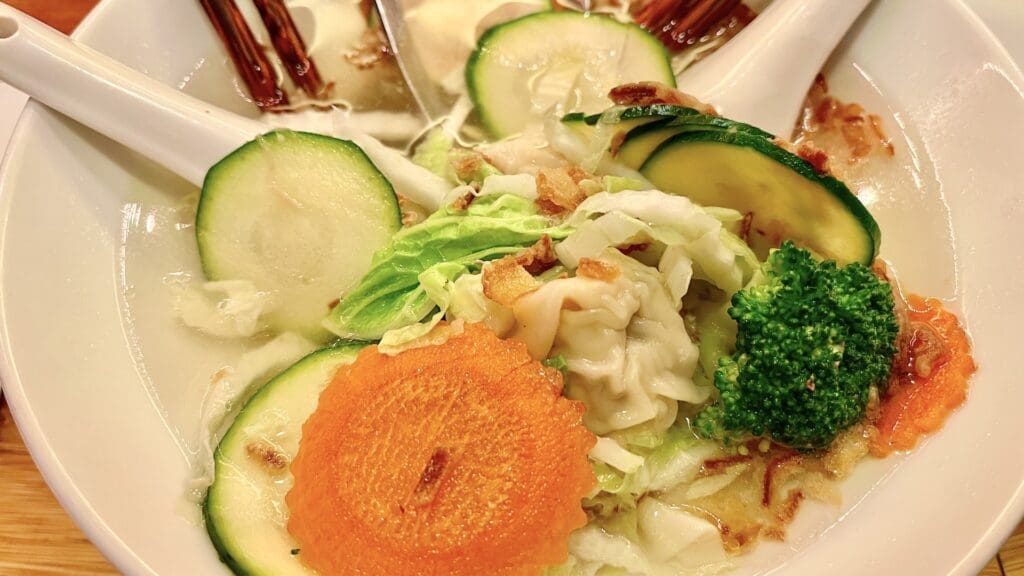
The Migration of Vietnamese to West and East Germany
The migratory process and protection of Vietnamese that fled the country were regulated by the Geneva Conference of the UNHCR. After the fall of Saigon, the first Vietnamese families arrived via different stations in former West Germany in 1978. They were given the status of political refugees under International Law. The first German state to accept refugees from Vietnam was Lower Saxony, with Hannover being the main destination.
The immigration of Vietnamese from communist Northern Vietnam to the “communist brother state” of East Germany had very different reasons. The two regimes had close political and economic ties and students from Vietnam had already come to former East Germany in the 1950s. They came to study at prestigious (East) German universities and get educated in the technologically advanced industries of the GDR (German Democratic Republic).
As a child, I remember photos of my parents with Vietnamese friends and colleagues they worked with in a big crude oil refinery plant close to Berlin.
Later on, the so-called “contract worker” (VertragsarbeiterInnen) agreements of the GDR with the Socialist Republic of Vietnam in the 1970s, led to a massive influx of Vietnamese to East Germany. In this context, East Berlin became the hub for the newly arriving labor migrants and their families from Socialist Vietnam. This is why the Vietnamese are nowadays the largest Asian community living in Germany and the city of Berlin.
Over the years, the Vietnamese who came to the still bisected city and the country imported their culture to their new home. And as a quintessential part of the culture, they imported their outstanding culinary culture as well. This is the moment when the story of Dat Vuong aka Monsieur Vuong comes in.
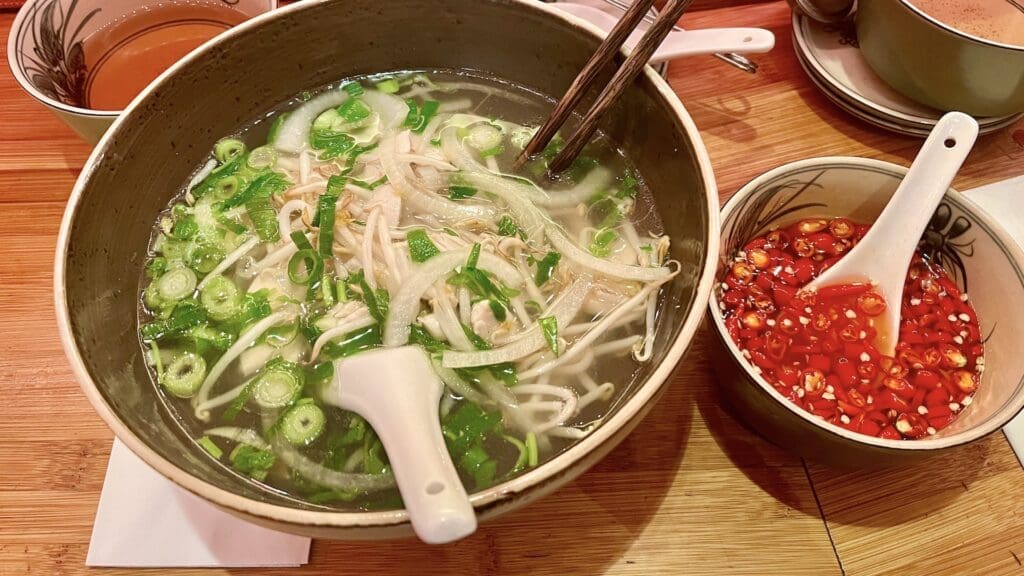
Bringing the Flavors of Saigon to Berlin — The Story of Dat Vuong and His Family
When Dat Vuong first arrived with his parents from Southern Vietnam as refugees in 1987 in a city called Solingen (in the State of North Rhine-Westphalia), typical herbs of the Vietnamese cuisine like, for example, cilantro were not really known to the German palette yet. The Asian cuisine was mostly “Germanized” to meet the expectations of the sauerkraut-loving crowd.
After having visited friends in Berlin in the early 1990s, Dat Vuong immediately fell in love with the chaotic, but the liberal spirit of post-Wall Berlin. He quickly decided to move there. Since his arrival in Germany, Dat had always missed the traditional, aromatic Vietnamese street-style food, which he used to know from his hometown Saigon.
In 1999, he opened up an Indochina café in the historical Scheunenviertel in Berlin-Mitte where he first sold the famous Vietnamese Banh Mi sandwich. The café became a sought-after meeting point for bohemians and other international guests of Berlin and was a huge success. Shortly after, he was able to open up his restaurant Monsieur Vuong nearby on Alte Schönhauser Straße. Another huge success.
The Restaurant Monsieur Vuong on Alte Schönhauser Straße
Standing in front of the restaurant Monsieur Vuong, you will already feel the vibe. If you’re looking for a quiet spot to have extensive, intellectual discussions about modern post-structuralist philosophy, while sipping your flat white (a coffee drink invented for English-speaking folks who have trouble pronouncing the word “cappuccino“), you’re probably at the wrong spot.
This place is always crowded, loud, and chaotic. But what a beautiful chaos it is. The food is traditional, aromatic, and simple, but extremely delicious. The restaurant’s interior is well thought out with quirky art, vibrant colors, beautiful fresh flowers, and a love for the details.
Their menu changes every week. There will always be something new to try. But if you go, don’t miss out on their classics like the traditional Phở with chicken or beef–the best Vietnamese Phở soup in Berlin. Or, enjoy their heavenly Wan Tan soup with a local craft beer from Berliner Berg.
As a starter, we recommend the crispy fried spring rolls with prawns and water chestnuts, or the steamed dumplings with prawns. The restaurant serves a lot of tasty vegetarian options as well. Even kids’ dishes are offered. So, there will be something for everyone.
For dessert, indulge in the warm banana sticky rice with a light coconut cream, peanuts, and sesame.
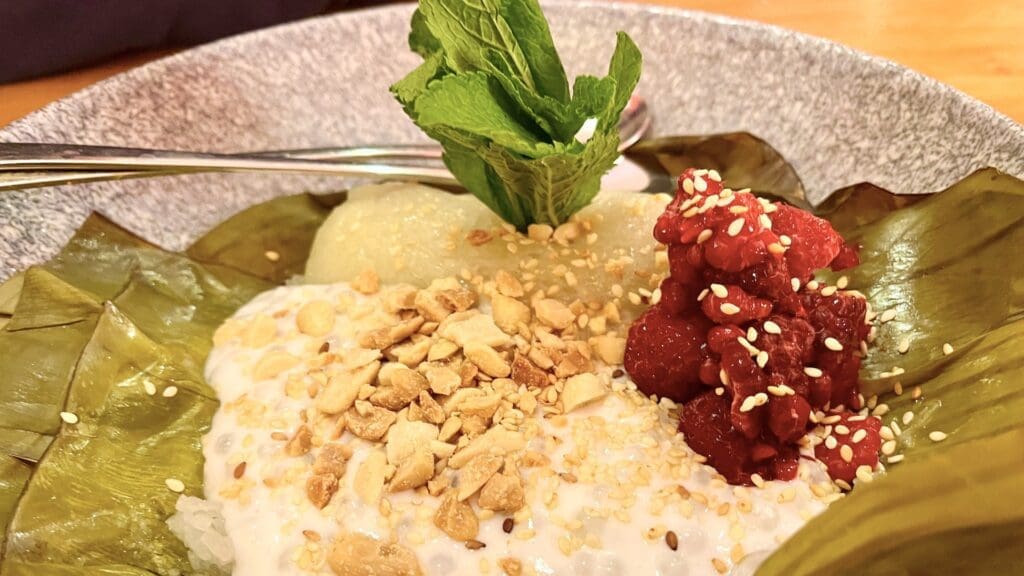
If you’re interested in learning more about Monsieur Vuong’s history, story, and some of his best recipes–you can purchase his book HERE! It is available in German and English.
During the week, they accept reservations, which are recommended. Since the service is very efficient and always very friendly, you can swing by spontaneously and get a spot if you’re not in a hurry. Do yourself a favor and check out Monsieur Vuong in Mitte, my dear friends!
If you would like to taste your way through the hidden streets of Berlin, see the city through the eyes of locals, and at the same time learn about the (migration) history of our “poor, but very sexy” hometown, don’t hesitate to book one of our Food and Walking Tours.
If you have any questions or need some help navigating the city and its incredible culinary landscape, feel free to reach out to us. We are always happy to give recommendations.
Alte Schönhauser Straße 46
10119 Berlin

